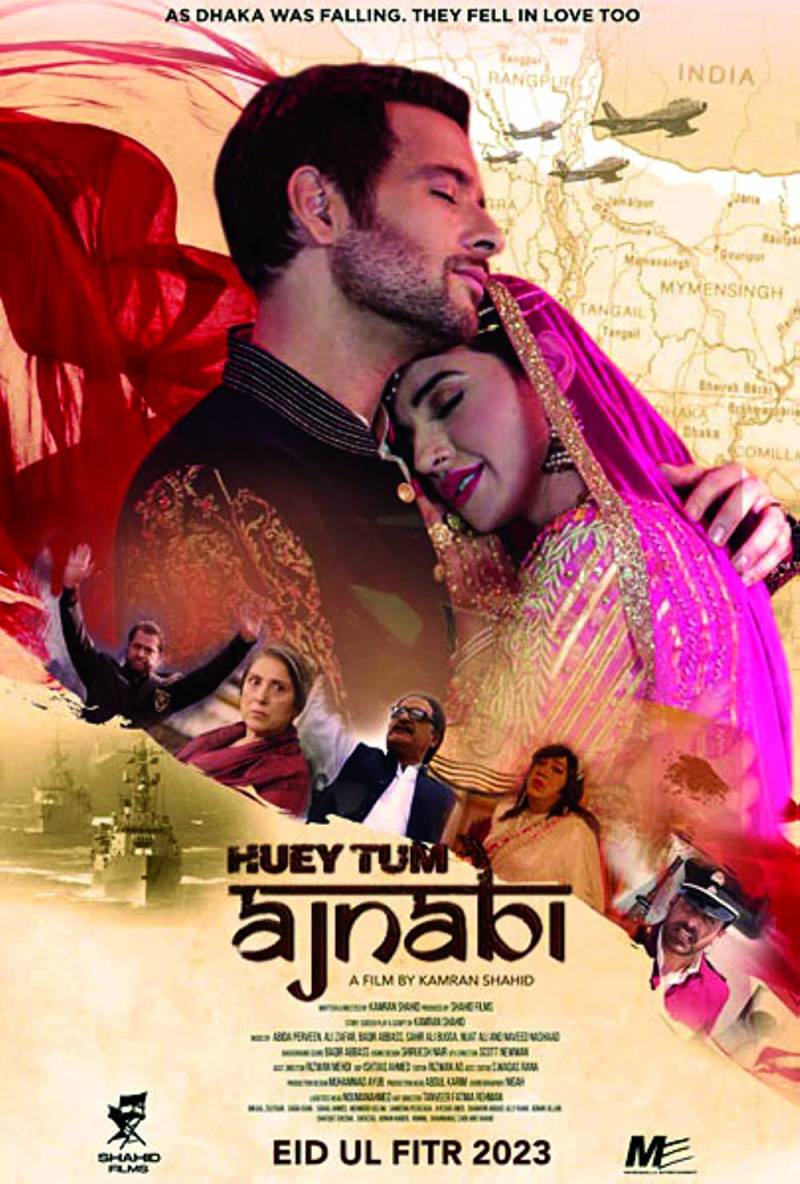
Outdated technique of inserting song after song that delays the pace and tests the patience of viewers and does little to advance the story, in fact, the songs seemed only to fill the vacuum left by the censorship that the film likely had met and were a distraction from all things that could have salvaged the film but didn’t for reasons we may all best know.
I will not comment on how historically true it is, I leave that to the historians but I do feel, there was no reason why this film should have been made at this point in time when Pakistan is faring the worst among its neighbours, on so many counts including on economic front, so all references to prosperity seemed like a farce today, a joke on our own selves!
Also, why the need to provoke old wounds with a lopsided narrative was felt at this point when we should be moving towards healthier relationships with our neighbours in the region is a kind of self-sabotage that I might never understand. Any messages of peace, brotherhood and solidarity with Bangladeshi people and attempts to distinguish and pin the Mukti Bahini as the opponent also felt more like an afterthought and could easily be missed in the blink of an eye.
It felt like the best parts (political drama) had been edited, omitted or at best relegated to the background in what seemed like a disjointed patchwork amidst the chain of songs.
Visual effects were good as was the background score and the cinematography in some sequences was endearing. Out of the performances, Mahmood Aslam as Sheikh Mujib, Samina Peerzada as Indira Gandhi & Shamoon Abbasi as Mukti Commander stand out the most. The actor who played the student leader of Mukti Bahini in Dhaka University, Ayesha Omer and the young child actor who played her niece in the film also left a mark in their supporting roles. Mikaal Zulfikar was reasonable. I had higher expectations from Sohail Ahmed as an actor but felt he was not consistent with his performance and kept jumping in and out of his character.
Cherry on top: Turns out this film is a classic love story in the disconnected backdrop of political events leading to separation of East Pakistan (now Bangladesh), and even in this the heroine turns out to be the hero’s – wait for it – cousin!!! Because Pakistanis cannot think beyond cousin love/marriages! Even her character's Bangla identity could not save her from the obsession of Pakistani writers with cousin marriage plots.
I will not comment on how historically true it is, I leave that to the historians but I do feel, there was no reason why this film should have been made at this point in time when Pakistan is faring the worst among its neighbours, on so many counts including on economic front, so all references to prosperity seemed like a farce today, a joke on our own selves!
Also, why the need to provoke old wounds with a lopsided narrative was felt at this point when we should be moving towards healthier relationships with our neighbours in the region is a kind of self-sabotage that I might never understand. Any messages of peace, brotherhood and solidarity with Bangladeshi people and attempts to distinguish and pin the Mukti Bahini as the opponent also felt more like an afterthought and could easily be missed in the blink of an eye.
It felt like the best parts (political drama) had been edited, omitted or at best relegated to the background in what seemed like a disjointed patchwork amidst the chain of songs.
Visual effects were good as was the background score and the cinematography in some sequences was endearing. Out of the performances, Mahmood Aslam as Sheikh Mujib, Samina Peerzada as Indira Gandhi & Shamoon Abbasi as Mukti Commander stand out the most. The actor who played the student leader of Mukti Bahini in Dhaka University, Ayesha Omer and the young child actor who played her niece in the film also left a mark in their supporting roles. Mikaal Zulfikar was reasonable. I had higher expectations from Sohail Ahmed as an actor but felt he was not consistent with his performance and kept jumping in and out of his character.
Cherry on top: Turns out this film is a classic love story in the disconnected backdrop of political events leading to separation of East Pakistan (now Bangladesh), and even in this the heroine turns out to be the hero’s – wait for it – cousin!!! Because Pakistanis cannot think beyond cousin love/marriages! Even her character's Bangla identity could not save her from the obsession of Pakistani writers with cousin marriage plots.

